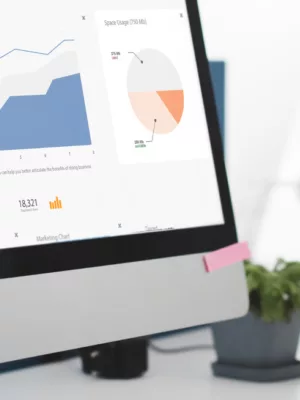
If you operate a business comparing CRM vs ERP, chances are you have some familiarity with CRM and ERP software. But what exactly are they, what are the objectives of each, and what's the difference between them? In this article, we'll explore the key differences between CRM and ERP software and help you decide which one you need for your business.
The basics: What are CRM vs ERP software?
First, let's start with the basics. CRM stands for Customer Relationship Management, while ERP stands for Enterprise Resource Planning. At their core, both CRM and ERP software aim to streamline business operations and improve efficiency, but they do so in different ways.
Understanding CRM software
CRM software is designed to manage and analyze customer interactions and data throughout the customer lifecycle, from lead generation to post-sales support. It serves as a central database that stores customer information, such as contact details, purchase history, and customer service inquiries, and allows businesses to track customer interactions across various channels, such as email, phone calls, and social media.
CRM software can also help businesses manage their sales pipeline, track deals and contracts, and automate sales processes. By providing businesses with a 360-degree view of their customers, CRM software enables them to provide better customer service, build stronger relationships, and increase customer retention.
About ERP software
On the other hand, ERP software is designed to manage a company's entire operations, from finance and accounting to inventory and supply chain management. It serves as a centralized platform that integrates all business processes, departments, and functions, enabling all parties to streamline operations, improve visibility, and reduce costs.
ERP software typically includes modules for financial management, human resources, inventory management, supply chain management, and other business processes. It provides businesses with real-time insights into their operations, enabling them to make data-driven decisions and optimize their processes for maximum efficiency.
The difference: CRM vs ERP software
So, what's the difference between CRM vs ERP software? In simple terms, CRM software focuses on customer interactions and data management, while ERP software focuses on overall business operations and resource planning. CRM software is typically used by sales, marketing, and customer service teams, while ERP software is used by finance, operations, and supply chain teams.
Choosing the right software for your business
Now that you have a better understanding of CRM vs ERP software, you may be wondering which one is right for your business. The answer depends on your business goals and needs.
If you're looking to improve customer interactions, enhance visibility on customer engagement, and build stronger relationships with your customers, then CRM software would be your first choice.
If you're looking to streamline your overall business operations and improve efficiency across all departments and functions, then ERP software is the better choice.
Of course, there's no one-size-fits-all solution, and many businesses choose to use both CRM and ERP software to manage their operations and customer interactions. This is a more complex scenario and needs a deeper look into multiple aspects of business, objectives, readiness, capacities, and others. On top of that, one of the key components to consider is to make them talk or integrate them to eliminate duplications, inconsistencies, and unwanted costs.

Wrap up
CRM vs ERP software are both powerful tools that can empower businesses to grow and stay competitive by adopting new technologies to streamline operations and boost efficiency. At Convergine, we helped multiple clients find and develop the solution that best fits their unique business needs. Whether clients opt for a custom web application or a SaaS solution like Zoho CRM, Convergine is committed to providing a solution that is optimized for their business. We guided clients in making informed decisions by considering factors such as short- and long-term goals, readiness, capacity, and budget.
If you are experiencing any challenges in understanding what is the right software for your business, we can help to take a first step toward the right decision. Click here to take advantage of a free consultation call where our experts will guide you through choosing the best solution for your unique business needs.







